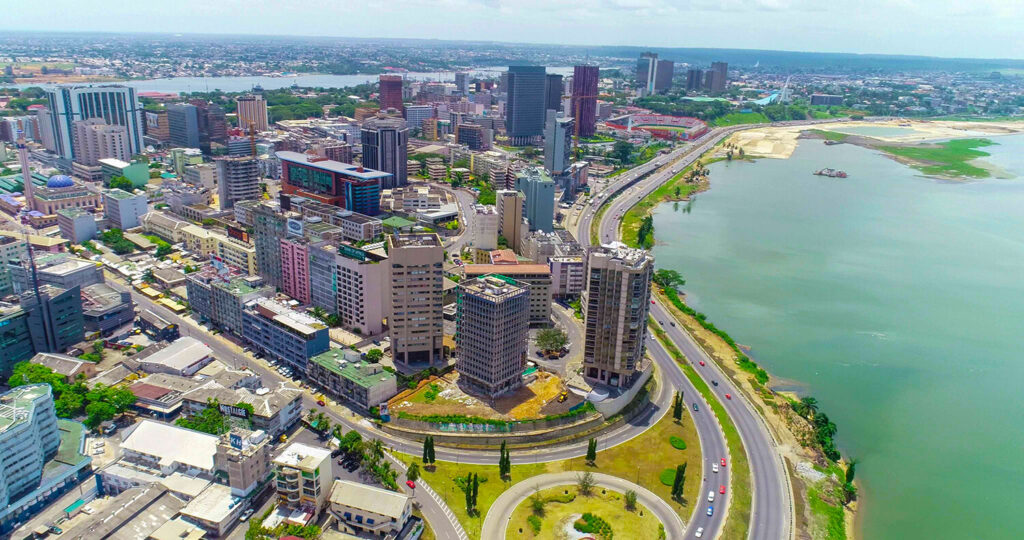
Expat Health and Travel Insurance Guide – Best Travel & Health Insurance for Expats
Whether you’re moving abroad for work, retiring to sunnier climes or traveling overseas on a regular basis, expat travel insurance is essential. Designed for longer-term stays abroad, it can cover you for both emergency hospitalization as well as ongoing medical costs like routine check-ups and treatments for chronic conditions.
Essentially, you can think of expat travel insurance as a safety net – hopefully, you won’t need to use it too much, but it’s nice to know it’s there in a pinch. Without it, you could be left footing unmanageable bills.
In this article, we’ll take you through the key features of expat travel insurance that you should look for, plus the different types of plans available on the market. With this information, you can make an informed decision about what kind of coverage best suits your individual circumstances.
What is Expat Travel Insurance?
Expat travel insurance is a type of coverage that has been created specifically for people who are planning to spend months or years abroad at a time. If you’re someone who is heading overseas for work, for example, you’d want to get this kind of policy. Similarly, if you’re planning to enjoy your retirement in a foreign country, you’d want to sign up for expat insurance.
It differs from standard travel insurance in a few key ways:
- It covers more than just health emergencies. Expat health insurance allows you to receive treatment and medication locally for a variety of conditions. Some insurers will even cover pre-existing and/or chronic health conditions.
- It spans a longer timeframe. Expat medical insurance usually lasts for a year, renewing annually. Standard travel coverage is designed for holidays, so there’s a relatively narrow window that the policy will run.
- It’s much more customizable. For example, you can add on maternity plans, dental and other items not covered by bog-standard travel insurance.
Why Do Expats Need Travel Insurance?
The most obvious reason to get expat travel insurance is so that you’re covered for any medical eventuality, from a car crash in Nigeria to a cancer diagnosis in China. These scenarios might not be pleasant to think about, but it’s better to have a plan in place rather than bury your head in the sand, otherwise you could find yourself paying enormous hospital bills.
In some countries, expats are entitled to treatment under the national health service. Italy, for example, provides employed foreigners with the same level of free coverage as Italian nationals, including emergency treatment and subsidized prescriptions. Conversely, Germany requires everyone to pay for health coverage, either through the statutory health insurer or a private health insurer.
Even if you are covered for free by a country’s healthcare system, it might still be worthwhile investing in international health insurance for expats if:
- You want access to a higher level of care. Private expat insurance can mean being able to choose hospitals or clinics with better facilities – and no long waits to be seen by a specialist.
- You want to be covered for treatment across a broader range of ailments. What exactly is available under the national health provider varies significantly by country, so you may want to pay for a plan that you know will cover any pre-existing conditions and chronic illnesses.
- You want to have the option of being evacuated home. In some cases, you may simply not feel comfortable having certain operations abroad and would prefer to be cared for by doctors in your native country.
Expat insurance generally focuses on health-related matters, but some encompass travel-related mishaps like lost baggage, flight cancellations and stolen items as well.
Depending on the package you select, you may also receive legal and liability protection, so that you’re covered if you inadvertently injure somebody or damage property while living abroad.
Key Features to Look for in Expat Travel Insurance
As we’ve already mentioned, expat travel insurance is usually highly customizable, and you’ll find a lot of different options available on the market. Most companies offer several different policy tiers, so it’s important to check precisely what’s included. Here are a few things to look out for:
- Level of medical coverage.
Health insurance for expats living abroad will almost always cover emergency inpatient treatment – this is where you need to be hospitalized for a life-threatening condition. Beyond that, you need to look at what kind of outpatient services are included. These could be things like minor surgeries, physiotherapy, prescriptions and specialist consultations.
- Emergency evacuation & repatriation
This is one of the most common features of a travel insurance plan, but how far it goes depends on the company. Some policies only cover medical emergencies, while others also include political crises – for example, if a civil war breaks out and you need to get out of the country fast.
- Coverage for multiple countries
Some expat plans will cover you only for a single country, while others will protect you globally only for a limited time. Mawista’s Expatcare plan, for example, focusses on providing insurance for expats living in Germany, but also allows up to three months of care worldwide.
- Pre-existing condition policies
A pre-existing condition can encompass anything from high blood pressure and diabetes to cancer and arthritis. Basically, it refers to any illness or disease for which you have previously received a diagnosis. Some companies, like SafetyWing, don’t cover pre-existing issues at all to keep their policies competitively priced. Other insurers will charge an additional fee depending on the kind of chronic condition you have.
- Routine & preventive healthcare options
Inpatient services like regular health checkups, cancer screenings and vaccinations are all examples of preventive care. Since they aren’t necessary related to emergency or pre-existing conditions, they are often classed as a separate kind of potential claim on an insurance policy.
- Dental & vision coverage
Emergencies related to your teeth and eyes are covered by most plans, but otherwise there’s quite a bit of variation between insurers. If you’re in acute pain caused by a tooth, for example, you’d be okay with most expat travel insurance providers. However, when you’re living abroad long term, you may also want to be covered for things like replacement fillings, crowns and regular eye checkups.
- Maternity coverage
Maternity coverage is not included in most basic insurance plans, but it is often featured as part of higher-tier policies or available as an add-on. If you are thinking of starting a family while overseas, it should be a core consideration when selecting insurance, since baby-related costs can be extremely high in some parts of the world.
- Mental health support & therapy
Mental health is another aspect of global health insurance for expats that isn’t considered core but can be essential for certain people heading abroad. There’s a considerable amount of stress associated with moving to a new country, adapting to the local culture and creating a new social circle. Counselling can be a useful tool to help you make the necessary adjustments.
- Sports & adventure coverage
For the active expats out there, you’ll need to examine whether the insurance plan you’re looking at covers more adventurous pastimes. Many insurers won’t cover things like skiing or kayaking as standard, but they may have specific plans to cater for more extreme pursuits. World Nomads, for example, offers Adventure Cover to people looking to paraglide or rock climb during their time overseas.
- Customizable plans for individuals, families, retirees, etc.
There’s a huge variety of policies on the market, from those designed for solo travelers, to those moving abroad with family, to retirees, to people working as maritime crew. These usually already have provisions for the specific group that they’re aimed at, which can make finding the right coverage a whole lot easier.
How to Choose the Right Expat Insurance Plan
Speaking of the right coverage, how do you know what’s best for you or your family? Here’s a checklist of things to investigate before choosing a plan:
- Assess your needs
The best expat travel insurance for a 4-person family is obviously going to be different from the ideal package for an adventurous 30-year-old. Before even looking at the options, it’s a good idea to sit down and make a list of things that you want from your coverage.
A frequent traveler, for example, is going to want a policy that covers them in multiple countries, while a retired couple are probably going to be more focused on finding a policy that has generous provisions for pre-existing conditions.
- Compare international insurance providers
Once you have an idea of your key requirements are, you can explore the options. There’s a huge expat travel insurance market, running the gamut from massive multinationals like Allianz to buzzy startups like Faye.
It might seem like a lot to take in, but it is worth expending the energy to find the perfect policy for your situation at the most competitive price.
- Consider the healthcare system in your host country
As we’ve already noted, some countries have a robust, free healthcare system already available. If that’s the case, you may just want to top it up with a limited private insurance policy. Other countries require you to purchase health insurance as a pre-requisite for being granted a visa.
Make sure you look up the requirements before committing to an insurance package. Government websites are a good place to start if you want to know what’s required in your destination.
- Check policy exclusions & limitations
This is one of the most important steps in choosing travel insurance for expats. No policy covers every single eventuality, so go over the fine print to ensure that it does at least cover your must-haves.
Pre-existing medical conditions is the one here that stands out most, but there may be certain activities or particular treatments that are not covered by an insurer. There may also be specific pre-existing issues that are covered (e.g., arthritis) but others that are not (e.g., heart conditions).
- Read customer reviews & testimonials
One of the great gifts of the internet is the democratization of reviews. These can help you make a more informed decision by exposing the experience of previous purchasers.
This is useful not only for getting a broad spectrum of opinions, but also for helping you home in on reviews from people who have similar requirements to yourself.
Top Expat Travel Insurance Providers
You’ll find deep dives into many of the best expat travel insurers on our website, but here’s a brief rundown of 5 of the most popular options:
- Genki
Genki offers health insurance tailored for digital nomads, emphasizing comprehensive medical coverage without annual limits. Their plans allow policyholders to seek treatment from any licensed healthcare provider worldwide. The enrollment process is straightforward, enabling users to sign up online even if they’re already abroad. In the event of a doctor’s visit, policyholders can submit a claim form and expect reimbursement within two weeks. For hospital stays, Genki coordinates directly with the hospital for payments.
Pros:
- Comprehensive Medical Coverage: Genki covers necessary medical treatments without imposing annual limits.
- Flexibility in Healthcare Providers: Policyholders can choose any licensed doctor or hospital globally.
- User-Friendly Enrollment: The sign-up process is quick and can be completed online, even if the individual is already traveling.
Cons:
- Limited Non-Medical Coverage: Genki primarily focuses on medical insurance and may not offer extensive coverage for non-medical travel-related incidents.
- Adventure Sports Coverage: It’s unclear if Genki covers injuries related to adventure sports; potential policyholders should verify this based on their activities.
- SafetyWing
SafetyWing provides global medical and travel coverage designed for nomads and remote workers. Their Digital Nomad Insurance offers two levels of coverage: Essential and Complete. The Essential plan provides short-term coverage for unexpected medical issues and emergencies while traveling outside one’s home country. Additional add-ons include adventure sports, electronic theft, and U.S. coverage for non-residents. SafetyWing operates on a subscription model, automatically extending coverage every 28 days until the user decides to cancel. They also offer 24/7 customer support and allow users to purchase or renew policies while already abroad.
Pros:
- Affordable Pricing: SafetyWing is known for its competitive rates, making it accessible for many travelers.
- Subscription Flexibility: The automatic renewal every 28 days provides continuous coverage without manual intervention.
- Comprehensive Add-Ons: Options for adventure sports and electronic theft coverage cater to the needs of digital nomads.
Cons:
- Per-Claim Deductible: A $250 deductible applies per claim, which could accumulate with multiple claims.
- Limited Coverage for Severe Health Issues: Some reviews indicate exclusions for significant health issues like cancer.
Medical for Nomads
- Insured Nomads
Insured Nomads offers insurance solutions for remote workers, modern companies, and global travelers. Their World Explorer plan provides travel medical insurance for trips ranging from 7 to 364 days, suitable for vacations, work travel, and more. They emphasize comprehensive protection, including medical, evacuation, and trip cancellation coverage. The application process is user-friendly, with online chat assistance available to guide users. Additionally, Insured Nomads offers a Guardian membership that provides benefits like airport lounge access, virtual consultations, and cybersecurity perks.
Pros:
- Comprehensive Coverage: Offers a wide range of protections, including medical, evacuation, and trip cancellation.
- Additional Perks: Membership benefits like airport lounge access and virtual consultations enhance the travel experience.
- Positive Customer Feedback: Users have praised the ease of application and responsive customer service.
Cons:
- Potential Cost: Some users find the plans to be on the pricier side compared to other options.
Pilot | The Collaborative Trip Planner - App Performance: There have been mentions of the mobile app being slow, which could be inconvenient for users needing quick access.
- Allianz
One of the biggest players on the insurance stage, Allianz has three levels of insurance cover. These can then be customized with add-ons as well as by the regions for which you want to be covered.
Pros:
- The core plan covers a lot of bases, including psychotherapy, prescriptions and diagnostic tests.
- You have the option to add maternity cover, repatriation and dental.
- There’s 24/7 access to Allianz’s expat assistance program.
Cons:
- It’s one of the priciest options on the market.
- There’s no option to add coverage for injuries related to adventure sports.
- Cigna Global
Cigna divides its expat offering into two main types of cover: international health plans and regional health plans. The former essentially covers you for the entire globe, while the other limits your coverage to a specific country (including visits home).
Pros:
- Cheaper plans are available for region-specific coverage.
- It’s customizable, with add-ons for dental care and repatriation.
- There are no age restrictions on plans.
Cons:
- The basic plan has a relatively low annual maximum for claims.
- There’s no option to add coverage for injuries related to adventure sports.
- GeoBlue
GeoBlue is a US-based insurer that has built its business out of serving the US market. Its Xplorer policy for long-term expats has two principal categories of cover: essential (everywhere in the world excluding the US) and premier (everywhere in the world including the US).
Pros:
- There’s an unlimited annual maximum.
- Pre-existing conditions are covered as standard, as are adventure sports.
- They have specialty plans for designed for expats working as educators, maritime crew members or missionaries, as well as a Trekker policy for multi-trip insurance.
Cons:
- Plans are only available to US citizens and US residents.
- Plans are only available for people aged 74 and under.
- IMG Global
There are four levels of medical insurance offered by IMG Global, offering a choice of affordable basic coverage or fully comprehensive coverage.
Pros:
- Gold and Platinum plans include dental emergencies as standard.
- All plans include medical evacuation.
- 24/7 emergency assistance is available, with multilingual operators to field calls.
Cons:
- It’s one of the priciest options on the market.
- All plans have limits for pre-existing conditions.
- WorldTrips
WorldTrips has a couple of expat travel insurance packages, both largely aimed at providing coverage for remote workers and people who travel regularly. Atlas Nomads offers year-long coverage for digital nomads, while Atlas MultiTrip allows for unlimited international trips of up to 30 or 45 days at a time.
Pros:
- Basic plans are very affordable.
- Plans cover travel delays, lost luggage and evacuation on top of medical emergencies.
Cons:
- Policies are not designed for long-term relocation to a single country.
- Pre-existing conditions are not covered.
Common Mistakes Expats Make When Choosing Insurance
- Ignoring pre-existing condition coverage
A study by Aviva in 2019 found that less than half of people fully disclose their medical history to insurers. That’s pretty shocking when you consider that failing to reveal a pre-existing condition can invalidate your policy and leave you footing the bill for any treatment, whether it’s related to the pre-existing condition or not.
Even though revealing past and/or ongoing medical issues can raise your premiums, it’s not worth jeopardizing your coverage by sidestepping the truth.
- Choosing the cheapest plan without enough coverage
Moving abroad is an expensive undertaking, so it’s understandable that you might want to get the cheapest deal possible. There’s nothing wrong with that necessarily – who doesn’t like a bargain? Just make sure that the plan you choose covers everything you need.
After all, there’s no point in choosing a plan with a super low premium if it doesn’t cover the things you want, whether that’s mental health counselling, adventure sports or chronic health issues.
- Not checking for global vs. regional coverage
Some policies are designed to cover travel across multiple countries or continents, others only allow for claims in a particular nation or region.
An expat who is moving abroad to China for a year or more and who doesn’t plan to travel much to other places will probably only need regional coverage. An digital nomad who changes locations more frequently will probably find global coverage more useful.
- Overlooking dental, vision and mental health benefits
Dental, vision and mental health treatments are usually not covered by your standard expat travel insurance policy. If these are things that you require, you’ll need to find insurers who offer add-ons or more comprehensive packages.
- Not reading the fine print on claims & reimbursements
Exclusions are the bane of customers, but they don’t need to be. It’s all about reading the fine print. Some common things that aren’t covered as standard include pre-existing conditions, certain activities like paragliding or abseiling, missed flights due to delays at the airport or medical treatment required due to excessive alcohol consumption.
Similarly, acquaint yourself with the insurer’s policies regarding reimbursements. Will your insurer pay for claims directly or will you need to stump up the cash in the first instance? Do you need to submit a claim form within a certain timeframe?
FAQs About Expat Travel Insurance
- Can expats use travel insurance instead of health insurance?
It really depends on the policy and how much coverage you require. Standard travel insurance usually only provides short-term coverage for emergency treatment, cancelled flights and lost luggage. Expat health insurance often runs for a longer period and entitles you to more comprehensive medical treatment.
- What’s the difference between local health insurance and expat insurance?
Local health insurance limits cover to a single country and is aimed at long-term residents. Expat insurance can cover multiple countries and is designed with the knowledge that customers may not speak the local language, so that treatment will take place in an environment where English-speaking doctors are present.
- How long does coverage last?
Most expat travel insurance covers at least 3-6 months, with 12 months a typical industry standard. However, it is possible to find longer-term policies or policies that renew automatically if your overseas employment contract is for an extended period.
- Can I keep my insurance if I move to another country?
That depends on the kind of health insurance you currently possess. Even if you have a global insurance policy, you will most likely need to tell your insurer that the country where you are residing has changed, which can affect your premiums.
- How does repatriation coverage work?
Usually, repatriation coverage means your insurer will pay to fly you home under certain conditions, as outlined in your policy. Most commonly, this will be if you have suffered an accident, and treatment is not available or too expensive in the country where the accident occurred.
Conclusion
No insurance is one size fits all. What matters most when you’re choosing your expat travel insurance package is that it covers the individual needs of you, your partner and/or family. Now you know the possible variations, customizations and exclusions, don’t be shy about shopping around for the best coverage to suit your requirements and budget.
If you’re ready to take the next step, you can explore some of the best expat travel insurance providers on our website and get a personalized quote.










Responses